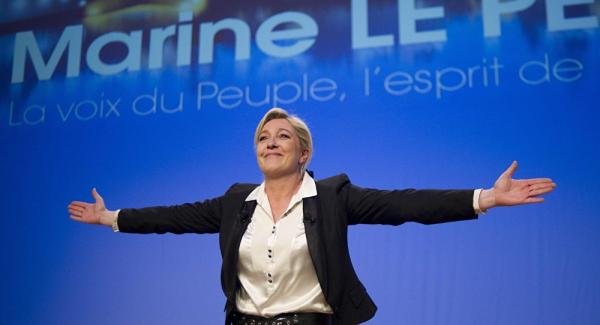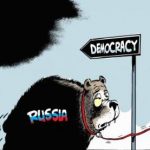- 7 October, 2016
- Foreign Policy

The organizations “European Values Think-Tank” and “Semantic Visions” have presented the results of their joint studies, which have reflected on how Russian propaganda depicts European leaders.
In particular, 59 million publications (from January 2014 to May 2016) from more than 22 thousand sources have been analyzed during the study.
Merkel and Hollande
The analyses of this huge volume of materials have shown that the Russian propaganda presents the leaders of France and Germany as leaders of the European Union, whom they “reserve the honor” of dealing with the Russian president Vladimir Putin.
The Russian media attaches the most important role to the Chancellor of Germany Angela Merkel, whose name is circulated in the Russian media a few times more than those of the officials of the European Union governing structures, such as President of the European Commission Jean-Claude Juncker, President of the European Council Donald Tusk or High Representative of the European Union for Foreign Affairs and Security Policy Federica Mogherini.
At the same time, the Russian media actively covers the activity of the leader of the nationalists, ultra-right Marine Le Pen, as well as pays special attention to the Bavarian Governor Horst Seehofer, who is also a right-wing conservative politician.
Pro-Russian Politicians
Besides, the study results show that the Russian media sources try to give more significance to the European politicians who somehow support Russian President Putin. In particular, this phenomenon has resulted in the fact that Russian media predominantly covers the activity of a number of Eastern European leaders, such as Czech President Milos Zeman, Hungarian Prime Minister Viktor Orban, Slovak Prime Minister Robert Fico. Russian media also focuses on Italian Prime Minister Matteo Renzi, who from time to time supports lifting of sanctions against Russia.
To sum up, Russian propaganda bypasses the role of EU institutions and leaves the political responsibility on concrete figures and, hence, makes the more acceptable voices more heard to the Russian audience. Such a behavior of Russian mass media points to the fact that they are controlled by Kremlin and serve its propaganda.
It is also worth noting that Russia, whose policy concentrates on ignoring the European bureaucratic system, always complains when the world’s attitude is not serious towards the Eurasian bureaucratic system. The large Eurasian integration projects, such as Eurasian Economic Union or CSTO, are perceived as “Putin’s structures” by the external world, in the same way as Putin presents European integration projects to his internal audience.
Vahe Ghukasyan
“Union of Informed Citizens”


 Հայ
Հայ Рус
Рус


